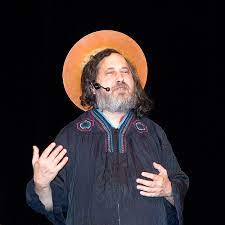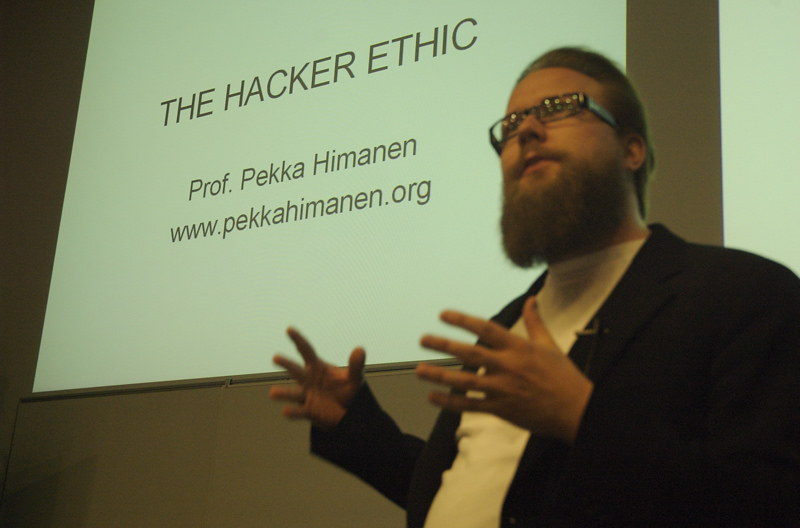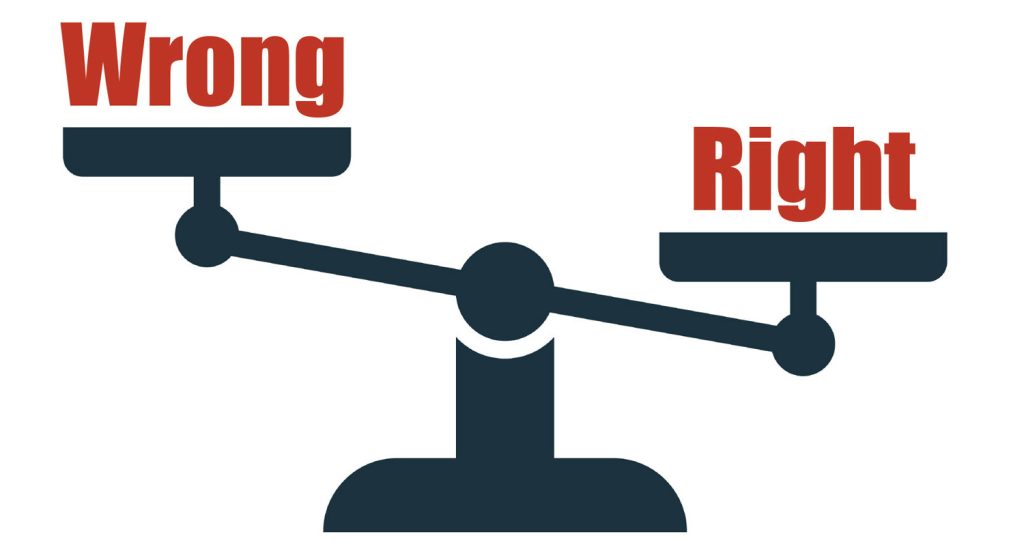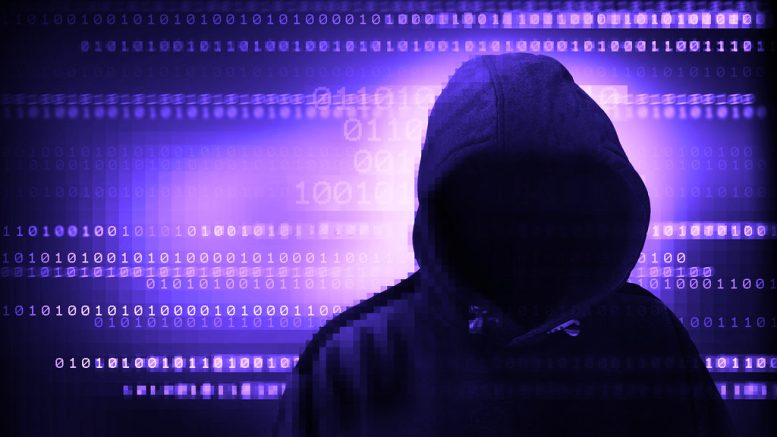ARIN2610 – Internet Transformations Blog
Hacker culture, a term that often conjures images of clandestine individuals subverting systems and breaching security, is far more complex and multifaceted than its portrayal in popular culture suggests. While hackers have been subject to misrepresentation and misunderstanding, this paper seeks to unveil the transformative and positive role that hacker culture plays in our digital world. Contrary to the prevailing negative stereotypes, hacker culture is a dynamic movement that pushes the boundaries of technology, promotes digital security awareness, and advocates for digital rights (Bhaskar,2022). In doing so, it contributes to the evolution of a more open and secure digital environment.This blog seeks to explore the historical evolution of hacker culture, the core principles that guide it, the ethical considerations it grapples with, the impact of prominent hackers and hacktivist groups, and its substantial contributions to creating a more open and secure digital world.However, as the term’s vagueness is a cause of misunderstanding (Castells, 2002), we must first define what we mean by the hacker culture.
Hacker Cultures
Exploring the Evolution, Principles, and Impact of Hacker Culture on Technology, Cybersecurity, and Digital Rights
Historical Evolution of Hacker Culture
The roots of hacker culture trace back to the early days of computing in the 1950s and 1960s (Haigh, 2021).It emerged within the community of computer enthusiasts who shared a passion for exploration and experimentation. Notable moments in hacker history include the formation of the Homebrew Computer Club, a gathering of early computer hobbyists that laid the groundwork for the personal computer revolution. Additionally, the emergence of phone phreaking in the 1970s, led by individuals like John Draper, exemplified hacker culture’s early curiosity-driven exploration of technology (Baraniuk, 2013). Over time, hacker culture has evolved from a niche subculture to a diverse and influential global community that shapes the digital landscape (Radsken,2022).
The Phreaking Underground: John Draper’s Ingenious Feat
In the 1970s, John Draper emerged as an early hacker whose audacious exploits became the stuff of legend. Draper’s remarkable discovery centered on a seemingly innocuous toy whistle included in Cap’n Crunch cereal boxes. This whistle emitted a specific frequency that allowed him to manipulate the telephone system, granting him and his peers free long-distance calls. Driven by curiosity and an insatiable thirst for exploration, these early phone phreaks unwittingly pioneered a subculture that challenged the established norms of technology.
However, as the exploits of John Draper and others gained notoriety, it became evident that their activities raised legal and ethical concerns. Phone companies were compelled to enhance system security and introduce regulations against such practices. Thus, Draper’s story serves as a significant chapter in the history of hacking, marking the emergence of computer hacking culture and laying the foundation for the cybersecurity field (Levy, 2010).
Hacker Pioneers: Shaping the Technological Landscape
Richard Stallman: The Father of Free Software
Richard Stallman, often referred to as the “father of free software,” is a revered figure in the hacker pantheon. Stallman’s groundbreaking work led to the establishment of the Free Software Foundation, an organization dedicated to promoting and preserving the principles that underpin the open-source movement. His advocacy for software freedom, characterized by the concept of copyleft, has empowered countless developers and users to collaborate, innovate, and share software without restrictive licenses.


Kevin Mitnick: Transformation from Infamy to Cybersecurity Expertise
Kevin Mitnick, despite a controversial past that included hacking into computer systems and eluding law enforcement (Gengler, 1999), has transformed into a respected cybersecurity consultant. His journey from infamy to expertise serves as a testament to the potential for redemption and reform within the hacker community. Mitnick now dedicates his knowledge and experience to enhancing digital security, helping organizations defend against cyber threats and educating individuals about online safety (Codemotion, 2023).
Hacker folklore and the tales of pioneers like John Draper, Richard Stallman, Linus Torvalds, and Kevin Mitnick illuminate the rich tapestry of hacking culture. These narratives reveal the transformative power of curiosity, innovation, and the pursuit of knowledge while underscoring the need for ethical considerations in the ever-evolving landscape of technology. As we continue to navigate the intricate terrain of hacking and cybersecurity, these stories serve as beacons guiding us toward responsible exploration and the responsible use of technology for the greater good of society.
The Hacker Ethic: Shaping Technology, Knowledge, and Freedom

At the core of hacker culture lies a set of principles that have not only profoundly influenced the hacker mindset but have also shaped the way technology is approached and understood. These guiding principles encompass curiosity, the pursuit of knowledge, information freedom, and a meritocratic ethos. Together, they form the hacker ethic, a philosophy that has driven hackers to unravel the mysteries of technology, share their discoveries, champion information freedom, and build a dynamic, innovative community.
- Curiosity: Hackers are driven by an insatiable desire to understand how things work. They thrive on the intellectual challenge of unraveling technological mysteries and exploring the inner workings of systems.
- Pursuit of Knowledge: Hackers prioritize the acquisition and dissemination of knowledge. Many contribute to open-source projects, freely sharing their code and expertise with the global community. This collaborative approach accelerates technological progress.
- Information Freedom: Fundamental to hacker culture is the belief in open access to information. Hackers advocate for open standards, transparency, and individual rights to access and share information freely.
- Meritocracy: Respect and recognition in hacker culture are earned based on skills and contributions, fostering an environment where anyone with the dedication and expertise can make a meaningful impact.
The hacker ethic is not merely a set of philosophical ideals; it is a practical guide that has shaped the hacker mindset and approach to technology. These principles have propelled hackers to push the boundaries of what is possible, resulting in significant advancements in computer science, cybersecurity, and the broader tech industry. The hacker ethic promotes a culture of continuous learning, collaboration, and the pursuit of a better, more open, and more secure digital world. As we navigate the ever-evolving landscape of technology, these principles continue to inspire individuals to embrace their curiosity, share their knowledge, defend information freedom, and contribute to a more equitable and innovative society. In doing so, they carry forward the legacy of hacker culture, leaving an indelible mark on our digital world.
Hacking in Popular Culture: Accurate Depictions, Exaggerations, and Impact on Public Perception
Hacking has long fascinated audiences and has become a recurring theme in popular culture, spanning movies, TV shows, books, and video games. (Gershon, 2018)These portrayals of hacking vary widely, from striving for accuracy to leaning towards exaggerated, sensationalized, or even fictional depictions of hacking. We’ll delve into the world of hacking in popular culture, exploring both accurate and exaggerated representations, and examining their impact on public perception.
In certain media, there is a conscious effort to portray hacking techniques accurately. These portrayals often showcase the coding skills, social engineering tactics, and the use of legitimate cybersecurity tools that hackers employ. They provide valuable insights into the technical challenges that hackers and cybersecurity professionals face in their pursuit of securing digital systems. These depictions emphasize the meticulous process of identifying vulnerabilities, exploiting them, and defending against cyber threats. However,many portrayals exaggerate the speed and simplicity of hacking, often making it appear as if breaching secure systems is a matter of mere seconds. In reality, hacking is a time-intensive endeavor that requires thorough research, planning, and expertise. These sensationalized depictions create unrealistic expectations about the rapidity of cyberattacks, contributing to misconceptions about the field.
Popular culture can have a significant influence on public perception (Gordon, 2018), often romanticizing hackers as heroic figures using their skills for justice or demonizing them as nefarious cybercriminals. These portrayals shape how the public views hackers, impacting attitudes toward cybersecurity and digital privacy. They can reinforce the perception of hacking as a tool for rebellion or criminality.Meanwhile,exaggerated portrayals contribute to misconceptions about hacking, leading to unrealistic expectations and misunderstandings of the field. This can hinder public understanding of the real challenges and ethical considerations in cybersecurity. It is crucial to recognize that hacking is a nuanced field with ethical implications and limitations, unlike some of the fantastical depictions in popular culture.
Hacking in popular culture blends education and entertainment, with accurate and exaggerated depictions shaping public views on cybersecurity and ethics. It’s vital to critically assess these portrayals as hacking evolves, fostering a balanced understanding of the field and its implications.
Hacking Controversies, Hacker Conferences, and Legal/Ethical Dilemmas
The world of hacking is a dynamic and ever-evolving realm that has been marked by a series of controversies, ethical debates, and legal challenges.(Kozhuharova et al., 2022) These issues not only shed light on the complexities of hacking but also have broader implications for privacy, security, and digital ethics. In this part, we delve into some noteworthy instances and ongoing concerns that have shaped the landscape of hacking, including the Snowden revelations, the Stuxnet worm, major data breaches and the legal and ethical dilemmas that hackers and security professionals grapple with.
Snowden Revelations: Privacy vs. National Security
Edward Snowden’s release of classified NSA documents in 2013 sent shockwaves across the globe. These documents exposed extensive government surveillance programs that included mass data collection and monitoring of communications. While Snowden’s actions sparked important debates on privacy, government transparency, and the ethics of whistleblowing, they also raised complex questions about the balance between national security and individual rights. The revelations continue to influence discussions on surveillance, data privacy, and government accountability.
Stuxnet Worm: Cyberweapons and Unintended Consequences
The Stuxnet worm, allegedly developed by nation-states, targeted Iran’s nuclear program and showcased the use of cyberweapons in geopolitical conflicts. This incident highlighted ethical concerns surrounding the use of digital weaponry and the potential for unintended consequences. The Stuxnet worm demonstrated that malware can escape its intended target and spread, underscoring the importance of responsible and ethical cyber operations.
Legal and Ethical Dilemmas: Navigating the Gray Areas

The hacking community grapples with a range of legal and ethical dilemmas. Responsible disclosure practices, which involve reporting vulnerabilities to organizations before disclosing them publicly, are essential but can be complex.
Bug bounty programs have become a common avenue for researchers to report vulnerabilities in exchange for rewards, but ethical considerations arise when determining appropriate compensation. Additionally, the line between legitimate security research and cybercrime can be blurred, leading to legal challenges and debates about the intentions behind hacking activities.
The world of hacking is a multifaceted domain that constantly evolves in response to technological advancements and societal changes. The controversies, ethical debates, and legal challenges it engenders highlight the intricate nature of the field. Balancing the pursuit of security, knowledge, and digital freedom with legal and ethical considerations is an ongoing challenge for hackers, security professionals, policymakers, and society as a whole. As the hacking landscape continues to evolve, addressing these concerns will remain essential for fostering a secure, open, and ethical digital environment.
Contributions to a More Open and Secure Digital World
Hacker culture has significantly contributed to a more open and secure digital world. The rise of open-source software, championed by figures like Eric S. Raymond in his book “The Cathedral & the Bazaar,” has been a significant development within hacker culture. It has led to the development of open-source software, encryption technologies, and stronger cybersecurity practices. By challenging closed, proprietary systems and advocating for information freedom, hackers have paved the way for greater transparency and accountability in the digital realm (Bellyaby,2021).
Linux is widely recognized as one of the most reliable operating systems, particularly for computers working on the Internet.
Castells, 2002
Linux: A Beacon of Hacker Culture in Open-Source Software
In the 1990s, Linus Torvalds, a Finnish hacker, initiated the Linux project to create an open-source operating system. This endeavor encapsulated hacker culture’s values of curiosity, knowledge sharing, and transparent collaboration. Linux attracted a global community of programmers, embodying the hacker ethos of inclusivity and meritocracy. Contributors, both experts and enthusiasts, worked together transparently.His open-source nature allowed for code scrutiny, fostering rapid vulnerability discovery and corrections. This transparency made Linux more secure than proprietary systems.It has become a cornerstone of the digital world, powering a wide range of devices. Major tech companies also embraced open-source principles, affirming hacker culture’s ideals.
Conclusion
Hacker culture, often misunderstood and misrepresented, is a powerful force for positive change in the digital realm. It embodies principles of curiosity, knowledge sharing, information freedom, and meritocracy. While ethical dilemmas exist, ethical hackers play a pivotal role in enhancing digital security. Prominent hackers and hacktivist groups have drawn attention to crucial issues and influenced public discourse. Ultimately, hacker culture contributes to the evolution of a more open, transparent, and secure digital world. It challenges prevailing stereotypes and highlights the transformative potential of hackers in shaping our digital future.
The media-aggravated stigma of irresponsibility that crackers bring to the community makes the mainstream hacker culture very uneasy.However, from an analytical standpoint, we must acknowledge the diversity of the hacker community while highlighting what, beyond ideological differences and individual behavior, unites all of its members: a conviction in the power of computer networking and a commitment to maintaining this technological prowess as a common good—at least for the hacker community.
Castells, 2002
Rerferences List
Baraniuk, C. (2013, February 20). Whatever Happened to the Phone Phreaks? The Atlantic; The Atlantic. https://www.theatlantic.com/technology/archive/2013/02/whatever-happ ened-to-the-phone-phreaks/273332/
Bellaby, R. W. (2021). An Ethical Framework for Hacking Operations. Ethical Theory and Moral Practice, 24, 231–255. https://doi.org/10.1007/s10677-021-10166-8
Bhaskar, R. (2022, May 18). Better Cybersecurity Awareness Through Research. ISACA. https://www.isaca.org/resources/isaca-journal/issues/2022/volume-3/bet ter-cybersecurity-awareness-through-research
Castells, M. (2002). The Culture of the Internet. The Internet Galaxy, 2, 36–63. https://doi.org/10.1093/acprof:oso/9780199255771.003.0003
Codemotion. (2023, July 20). The Life of Kevin Mitnick: The World’s Most Famous Hacker. Codemotion Magazine. https://www.codemotion.com/magazine/cybersecurity/kevin-mitnick-the- worlds-most-famous-hacker/
Eric Steven Raymond. (2010). The cathedral & the bazaar. Snowball Publishing.
Gengler, B. (1999). Super-hacker Kevin Mitnick takes a plea. Computer Fraud & Security, 1999(5), 6. https://doi.org/10.1016/S1361-3723(99)90141-0
Gershon, L. (2018, November 23). How Hacking Got Hacked. JSTOR Daily. https://daily.jstor.org/how-hacking-got-hacked/
Gordon, F. (2018). Children, Young People and the Press in a Transitioning Society : Representations, Reactions and Criminalisation. Palgrave Macmillan Uk.
Haigh, T. (2021). When hackers were heroes. Communications of the ACM, 64(4), 28–34. https://doi.org/10.1145/3451227
Kozhuharova, D., Kirov, A., & Al-Shargabi, Z. (2022). Ethics in Cybersecurity. What Are the Challenges We Need to Be Aware of and How to Handle Them? Cybersecurity of Digital Service Chains, 13300, 202–221. https://doi.org/10.1007/978-3-031-04036-8_9
Levy, S. (2010). Hackers : heroes of the computer revolution : 25th Anniversary Edition. O’reilly.
Pekka Himanen. (2009). The Hacker Ethic. Random House.
Quora. (2017, September 7). Where Did Hacker Culture Come From? Forbes. https://www.forbes.com/sites/quora/2017/09/07/where-did-hacker-cultur e-come-from/?sh=74bd0ce93362
Radsken, J. (2022, February 23). Wading into culture of computer hackers. Harvard Gazette. https://news.harvard.edu/gazette/story/2022/02/wading-into-culture-of-c omputer-hackers/
Sorell, T. (2015). Human Rights and Hacktivism: The Cases of Wikileaks and Anonymous. Journal of Human Rights Practice, 7(3), 391–410. https://doi.org/10.1093/jhuman/huv012




